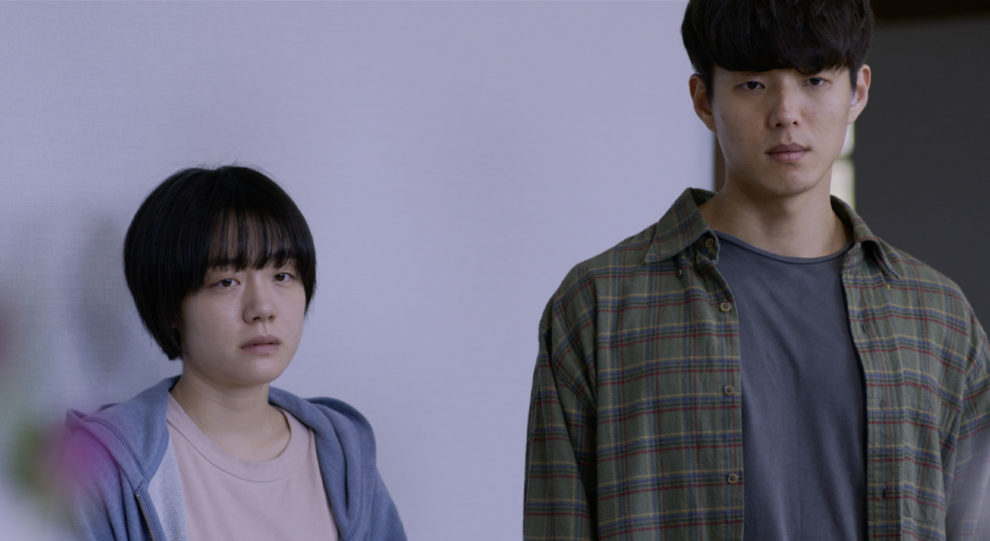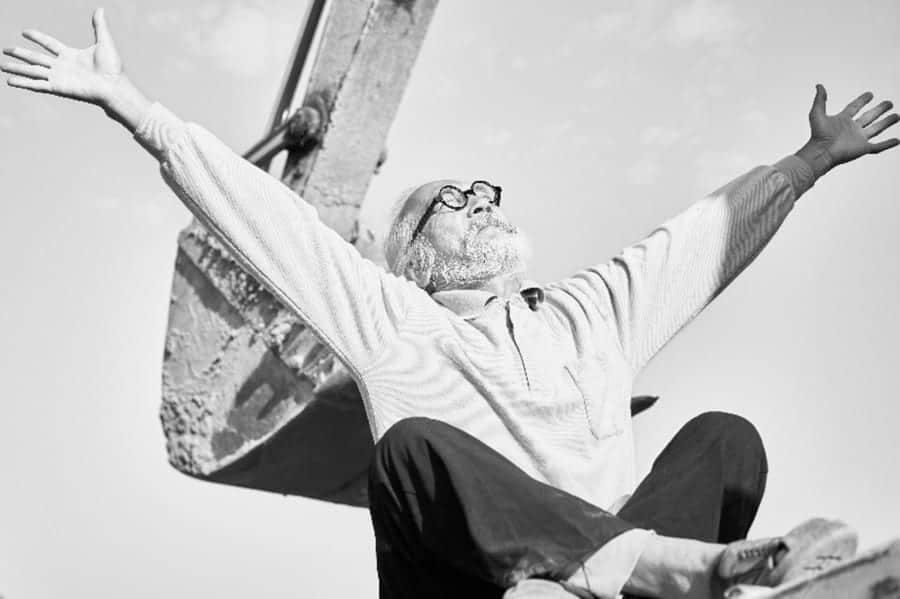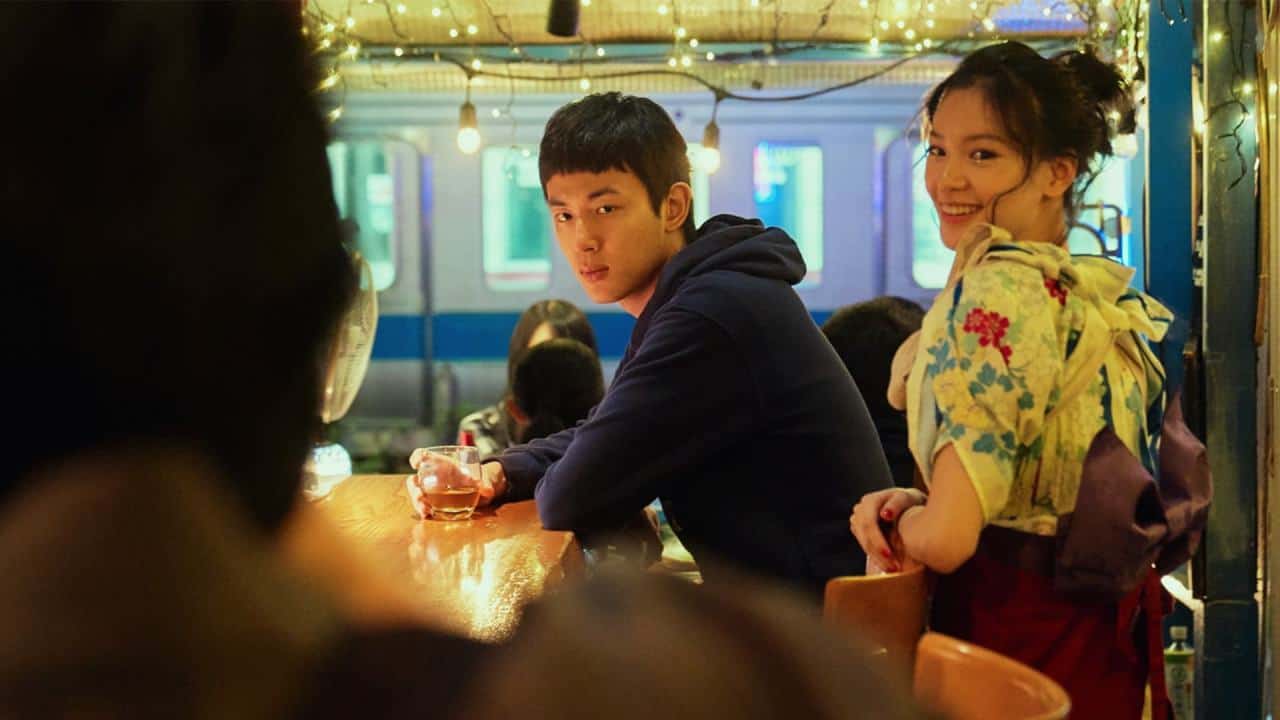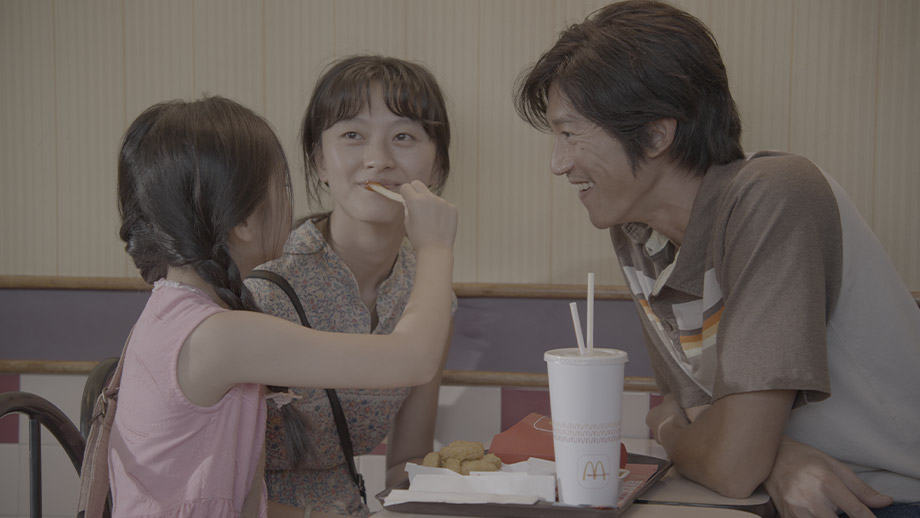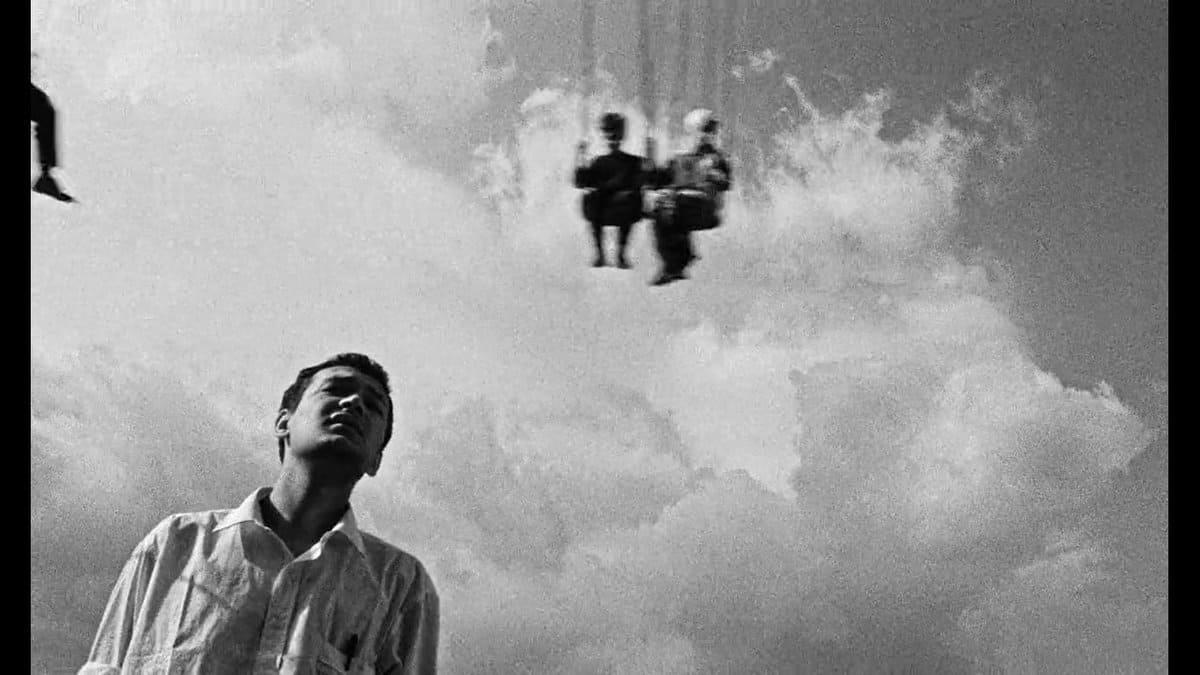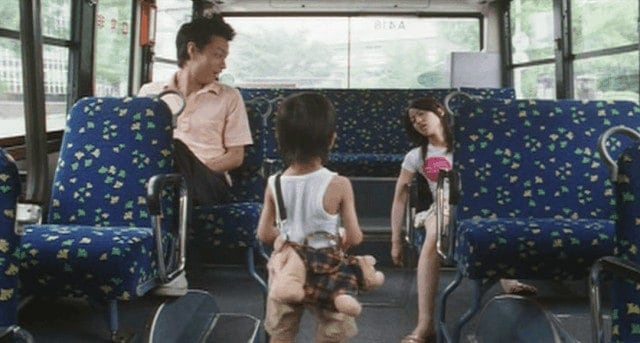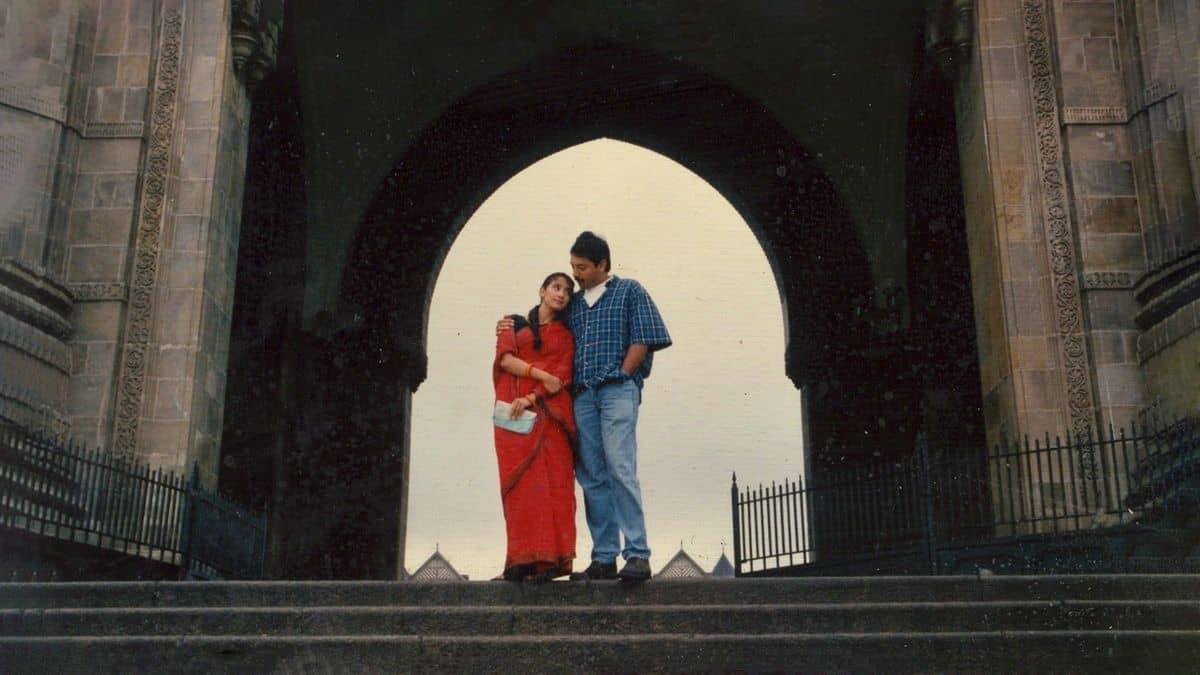Korean indie cinema has made significant steps forward, to the point that even titles that are not considered “top” (as in screening all over the world and getting awards from festivals) are occasionally quite good. Actor turned director Kim Rok-kyung's first feature effort is one of those movies.
“Festival” is screening at the Florence Korea Film Fest

Kyeong-man is an unknown MC (master of ceremony), who also has to deal with his almost completely bed-ridden father, along with his youthful sister, Kyeong-mi. Their mother has left them years ago, and Kyeong-man is essentially in charge of everything, including the financial affairs of the family, which are, though, in shambles, since he is the only one with an income. Eventually, his father dies, and he finds himself completely strained, not being able to handle funeral expenses, while his relatives, and particularly his father's brother, pressure him to return to them the money he owns. During the ceremony, a job offer comes up in a small town away from the city, and having no alternative, he decides to take it up, leaving his younger sister to deal with everything, including a set of rather obnoxious aunts and a number of unhelpful (to say the least) relatives. When he arrives at the town, the father of the elderly woman who is celebrating, ask him to dress up as his deceased father, in order to cheer his mother up. Kyeong-man obliges but the festival takes a turn for the completely unexpected, and he finds himself strained there, while Kyeong-mi grows more and more hopeless.

Kim Rok-kyung takes an unusual approach to his narrative, since the dramatic premises are interspersed with ironic, mocking humor about the whole concept of ceremonies, and essentially customs, in Korea. In that fashion, the story starts as an intense drama, particularly for Kyeong-man, who has to dress up as a clown to promote sales, and after that to go to the hospital to take care of his father, while the people whom he owes money are constantly on his heels. That his sister is rather unhelpful, particularly in the bigger scale of organizing things, makes things even worse for him, essentially creating a portrait of everyday tragedy. A few moments where the father tells his children off for fighting are somewhat humorous, but his death puts an end to that completely.
Furthermore, that Kyeong-man is in a bind financially, which he feels strangling him even more after his father's death and his relative's attitude, induces the story with a sense of angst, as he is drowning in pressure from every corner. The proceedings in the celebration, and the country-bumpkin nature of the locals again provides a humorous relief, but the events there soon turn the story to a drama once more, while the pressure begins to pile, also on Kyeong-mi, who has to deal with everything her brother had to do for the funeral, and is obviously completely out of her depth.
The attitude of the aunts during the funeral, who badmouth the deceased and then “inform” their niece that she has to woe loudly when people come during the funeral, the guest who wants to flirt with one of the women there, and the way the people in the country try to avoid paying Kyeong-man, brings again the narrative to something comedic.
This succession between drama and comedy is also where most of the social comments of the movie lie. The overall ridiculousness of these ceremonies, particularly in connection with the time they have to be commenced, is one of the most central ones, as two shattered people have to pay a large sum of money and essentially to host a number of people whose behaviour ranges from unfair to despicable. And all these just when their father has died. The same comment derives from the festival in the country, with its ending and the attitude of the people who organize it intensifying the criticism even more. This part also makes a comment about people in the country, who are presented as rather cheeky, cunning, and always eager to make things bigger than they really are. At the same time, however, and during the ending, Kim takes care of also showing that, deep down, they are kind-hearted.
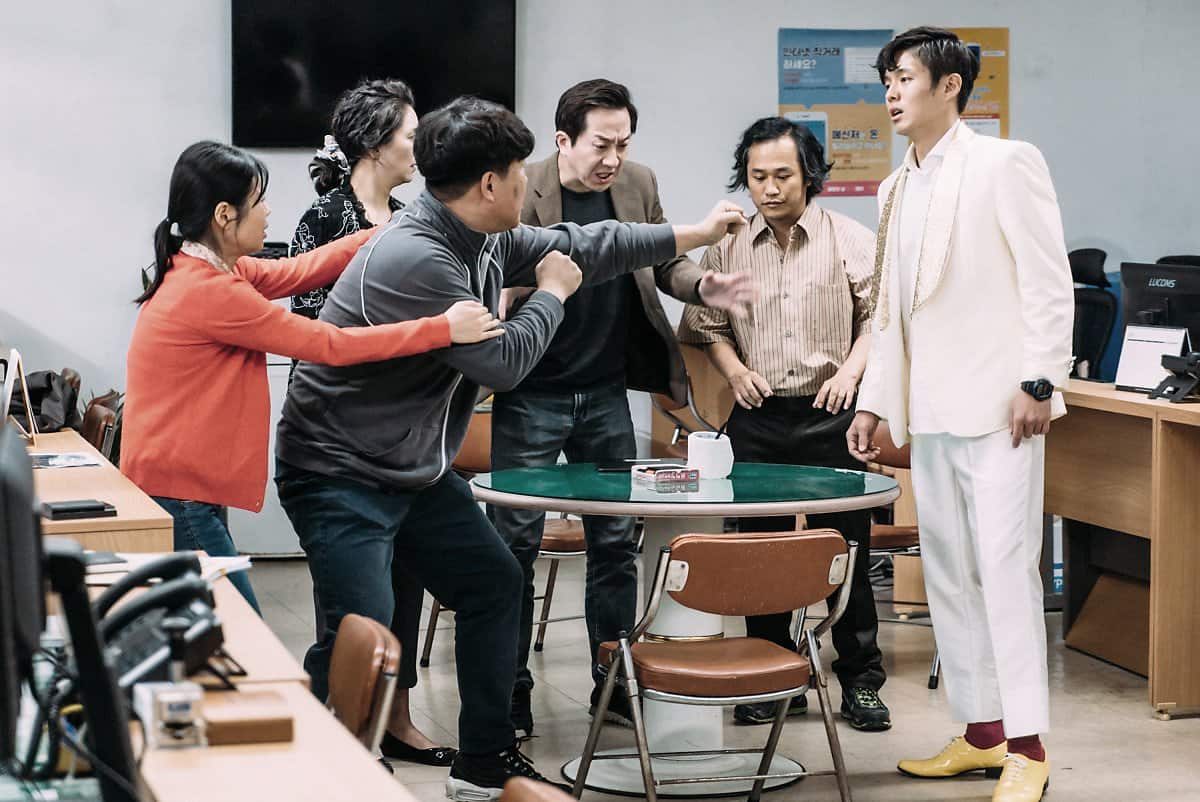
Despite the aforementioned humorous moments, the narrative follows the path of the tragedy, with the two protagonists, and particularly Kyeong-man, experiencing events that worsen their situation as the story progresses. When things reach a boiling point, however, the catharsis eventually arrives, essentially preventing the film from becoming a melodrama. The build up to this moment makes the concept even more impactful, although the narrative lags a bit on occasion, which is the most significant fault here. Nevertheless, the outcome and the release of pressure are quite well presented, also highlighting another aspect in the relationship of the two siblings.
Ha Joon as Kyeong-man is impressive here, with his inner struggle and his effort to appear cheerful constantly due to his occupation being presented rather artfully. The moment he finally erupts is probably the best part of his performance, also because he manages to retain a sense of measure. So Ju-yeon as Kyeong-mi highlights her despair and her dependence from her brother convincingly, although the fact that she spends most of the film on the verge or actually crying becomes a bit annoying after a fashion.
The cinematography follows the rules of the Korean indie, with the focus being on realism, without any particular exaltation. The same applies to Kim Hyeoong-joo's editing, that retains a fittingly slow pace, although a bit of lagging does exist here, both through the number of scenes and the duration of some.
“Festival” is a very interesting film that manages to make its comment through a very intriguing approach, which includes a subtle, intelligent and quite pointy critique on the ways of modern Korean families.


